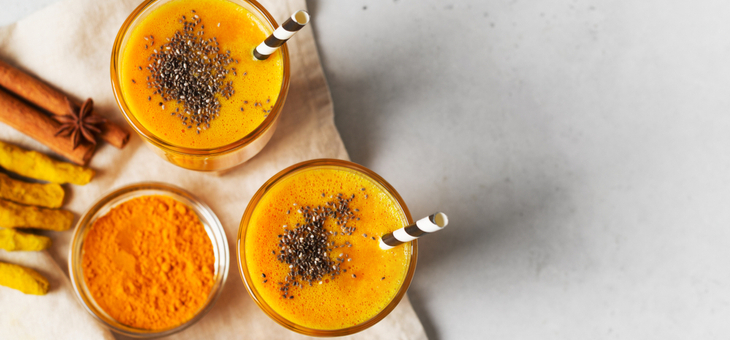Prescription medicines have not made many inroads into improving memory, brain health and fighting the ageing process, but new research suggests that some common food ingredients may help.
Studies released this week announced that curcumin was the brain supplement of the year, while another report found that extracting a substance from chia seeds could help create medicines and anti-ageing products.
Curcumin, which is the best-known component of the popular spice turmeric, was announced as the cognition supplement of the year by an organisation devoted to slowing or halting mild cognitive impairment.
“Medical journals reveal many positive reports of this natural food supplement aiding cognition maintenance and even improvement,” explained Dr Leslie Norins.
He said that the beneficial properties of curcumin could be especially relevant to older adults coping with mild cognitive impairment, a serious memory disorder, which can sometimes point to the beginnings of Alzheimer’s disease.
“It’s important to look into every well-tolerated substance which might alleviate or halt the memory losses of this condition,” Dr Norins said.
Curcumin is readily available and is relatively inexpensive.
Dr Norins said that most research focused on the later stages of Alzheimer’s disease, but there should also be some thought given to relatively safe substances that may be able to boost cognition.
In a separate study, a team from Purdue University, Indiana, has discovered an extraction technique to separate mucilage from chia seeds, which it hopes will provide new options for medicine capsules and anti-ageing products.
Chia seeds are tiny, dry, black seeds, but you have to soak them before eating as they can absorb about 10 times their weight in water, resulting in a gelatinous texture.
This is because of the mucilage, a thick and gluey substance that surrounds chia seeds and can make processing the seeds for food or pharmaceutical uses much more difficult or nearly impossible.
Chia seeds have been used for centuries as protein sources but, according to Dr Uriel Urbizo from the Purdue University innovation team, conventional separation methods such as freeze-drying could be expensive, time-consuming and damage useful components of the seeds.
The Purdue researchers tested their method for potential anti-ageing products and medicine capsules with impressive results.
“Our method offers an improved option for creating products that use components, primarily peptides, from the chia seeds to inhibit enzymes that play a role in the ageing of skin,” team leader Associate Professor Andrea Liceaga said.
Have you tried adding superfoods to your diet? Which ones do you consume regularly? What benefits have you seen?
If you enjoy our content, don’t keep it to yourself. Share our free eNews with your friends and encourage them to sign up.
Related articles:
https://www.yourlifechoices.com.au/health/covid19/prime-minister-commits-to-covid-vaccination-date-despite-setbacks
https://www.yourlifechoices.com.au/health/brain-health/obesity-weighs-on-alzheimers
https://www.yourlifechoices.com.au/lifestyle/five-things-covid-is-making-obsolete

